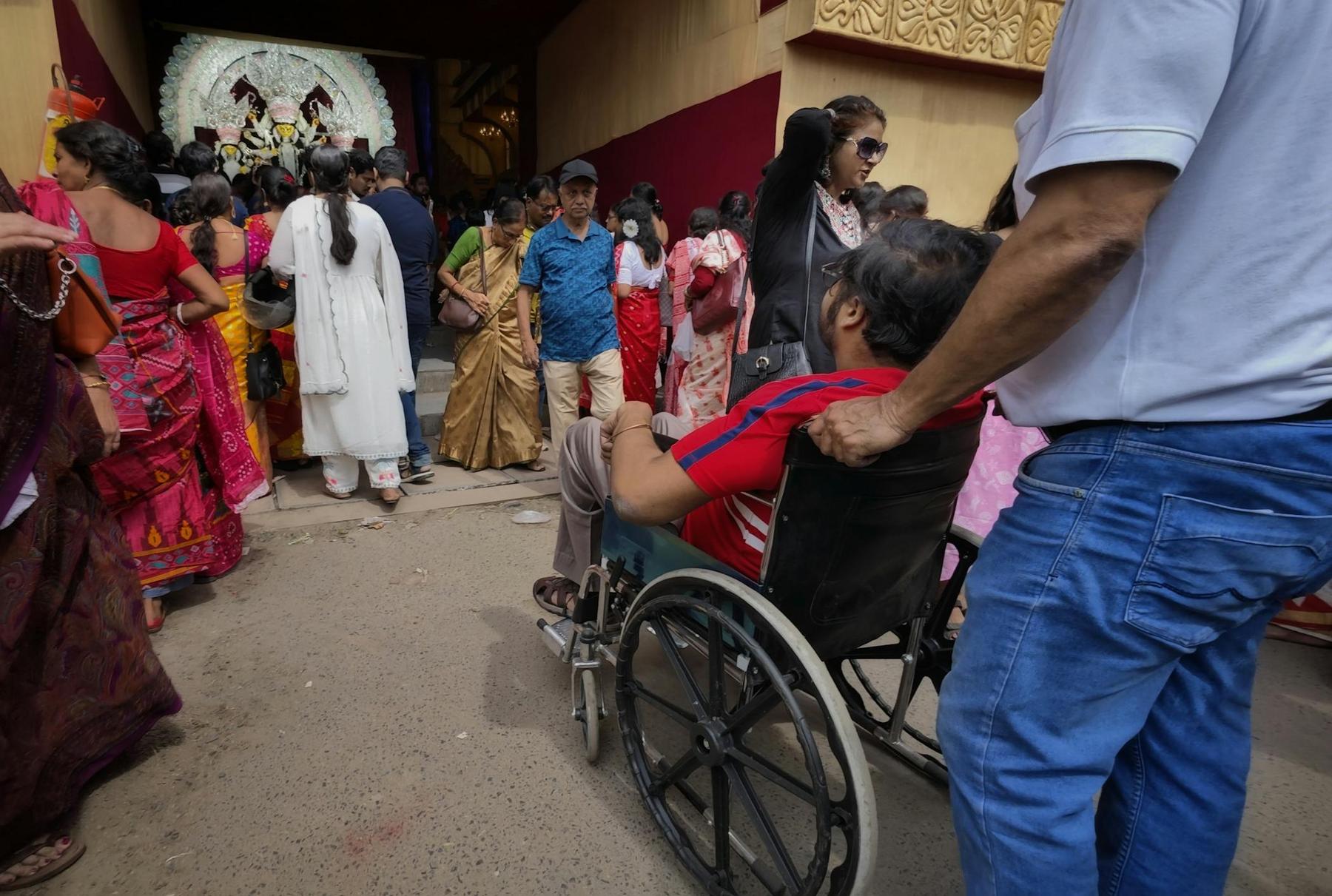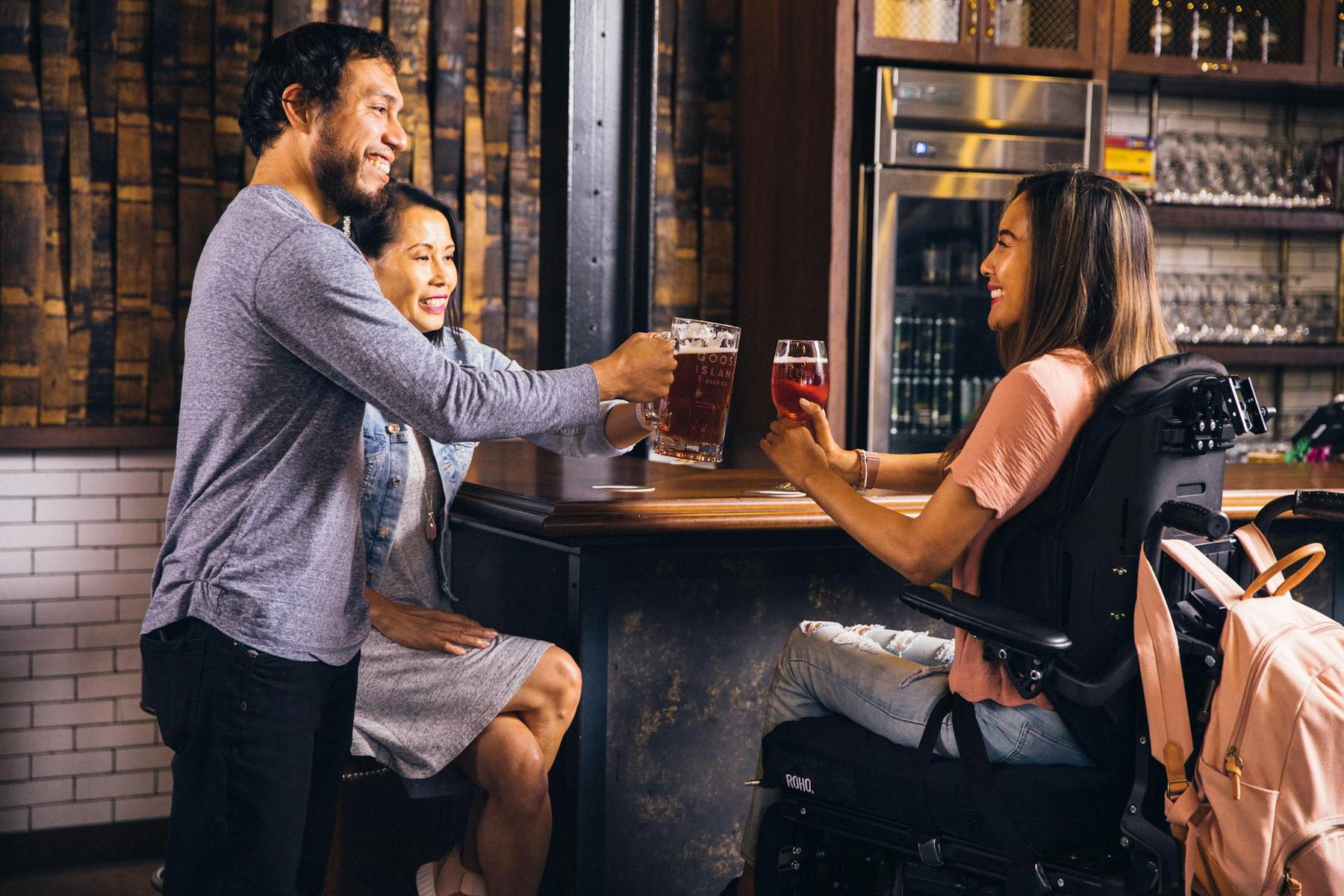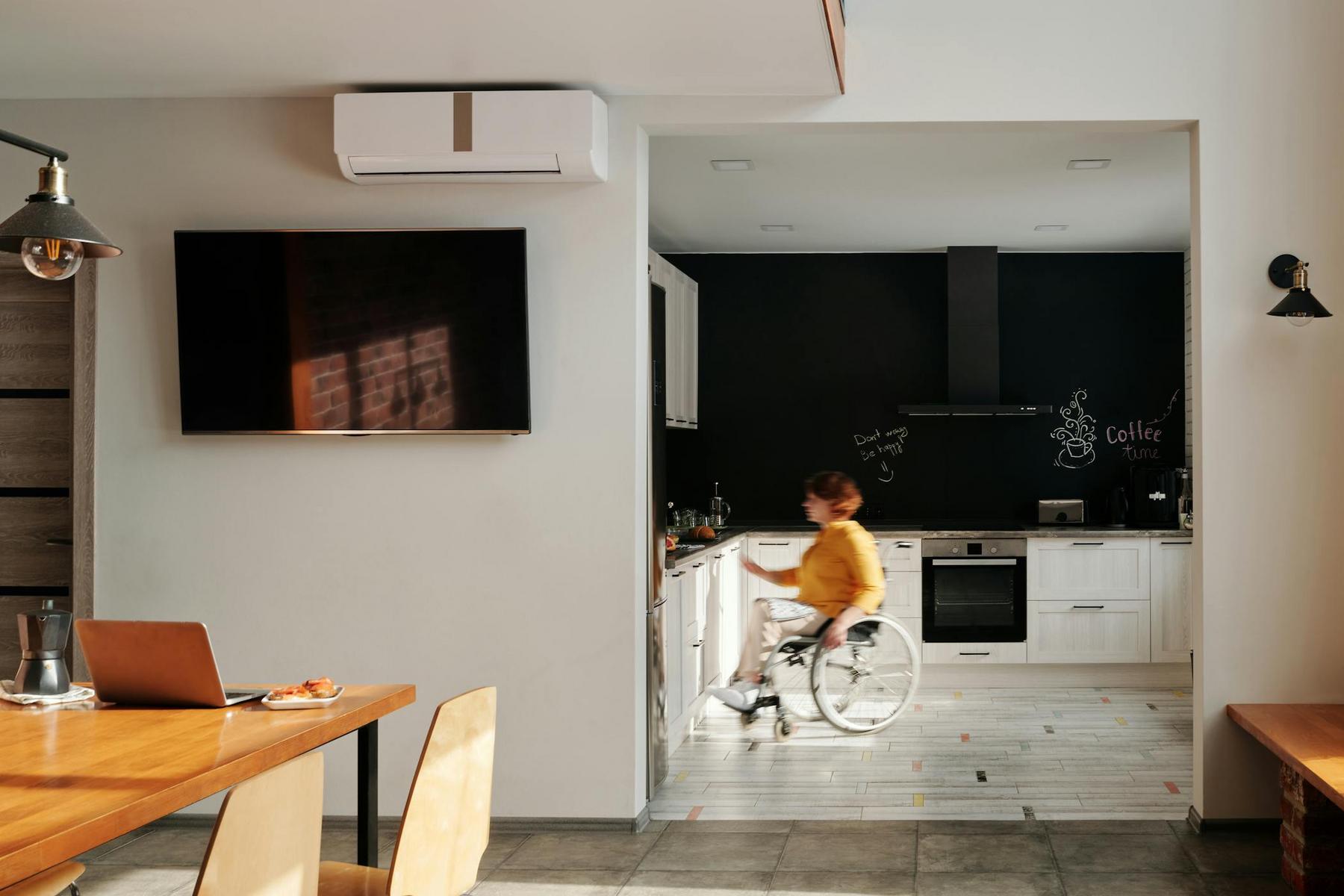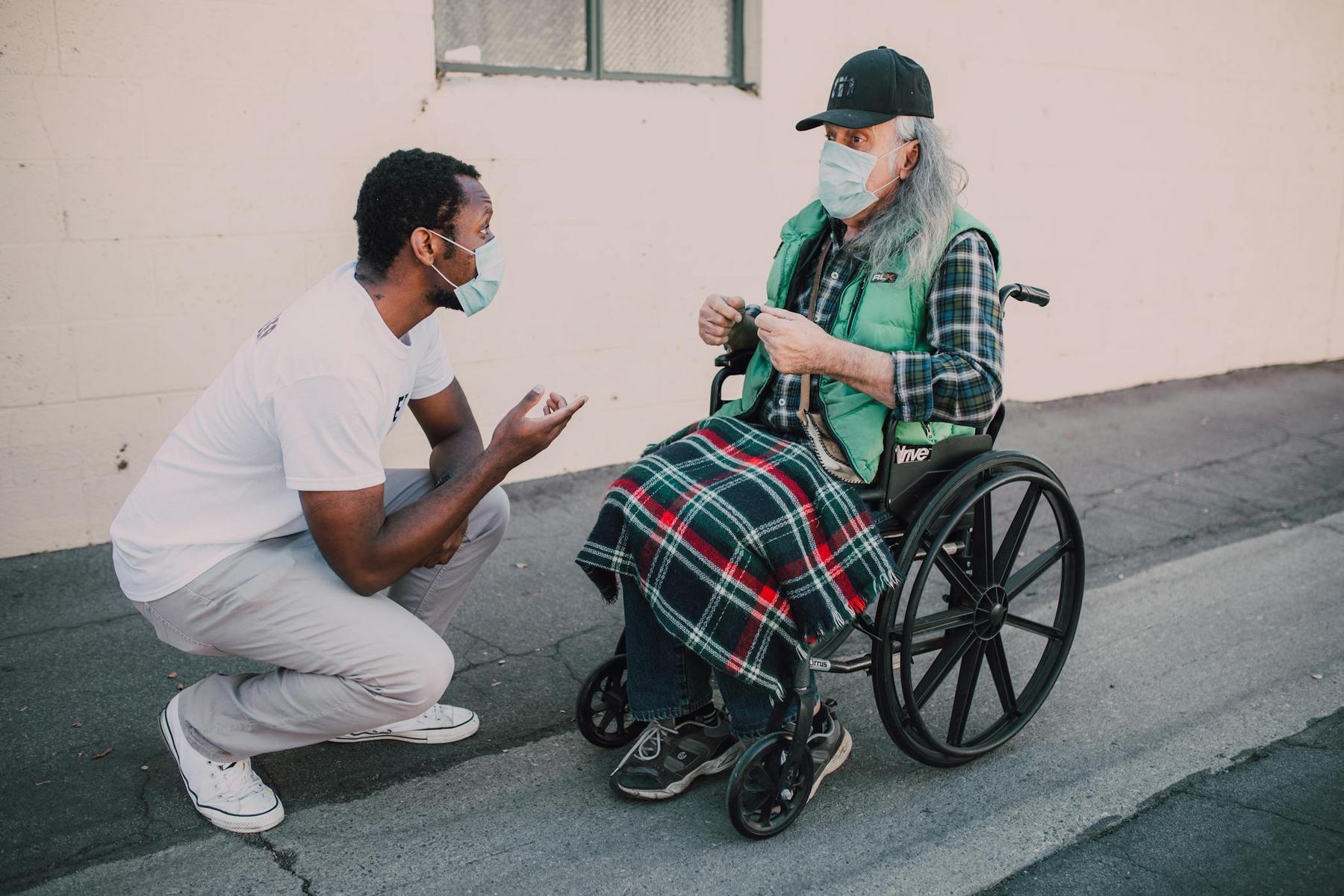When you’re planning your social calendar, the question shouldn’t be “Can I attend this event?” but rather “Which incredible event do I want to experience next?” For the over 935,000 Queenslanders living with disability—representing 19% of our state’s population—this fundamental shift in perspective is becoming reality, particularly in Brisbane, where accessibility isn’t an afterthought but a cornerstone of community engagement.
Brisbane’s transformation into one of Australia’s most inclusive cities didn’t happen by chance. Since 2012, Brisbane City Council has invested more than $230 million in accessibility projects, creating a city where 100% of buses and City Cats are wheelchair and pram accessible, where 40 playgrounds have been enhanced with accessibility features, and where 250+ multicultural festivals have been funded with inclusion at their heart. But beyond the infrastructure and impressive statistics lies something more profound: a community that recognises that true accessibility means everyone—regardless of their abilities—can fully participate in the vibrant cultural, artistic, and social experiences that make Brisbane extraordinary.
As we look towards 2026, Brisbane’s disability-friendly events calendar has never been more robust or more genuinely accessible. This comprehensive guide will help you navigate the year ahead, understanding not just which events welcome you, but how to make the most of the access features, support services, and community resources available.
Why Is Brisbane Leading the Way in Accessible Events?
Brisbane’s reputation as a national leader in addressing access and inclusion issues stems from both legislative requirements and genuine community commitment. Under Australia’s Disability Discrimination Act 1992, it is unlawful to discriminate against people with disability, requiring that public places and services—including event venues—must be accessible unless modifications would involve “unjustifiable hardship.”
The Disability (Access to Premises – Buildings) Standards 2010, which came into effect on 1 May 2011, have significantly improved access for new buildings and renovations, mandating more accessible unisex toilets, better circulation space, improved signage, and more accessible spaces in theatres and cinemas. These legal frameworks provide the foundation, but Brisbane has consistently exceeded minimum requirements.
The Brisbane Access and Inclusion Plan demonstrates this commitment through tangible outcomes. With seven accessible aqua play facilities built, more than 40 community halls improved for accessibility, and 143 community programmes funded, the city has created an ecosystem where accessibility is woven into the fabric of community life. For the approximately 191,000 Queenslanders who serve as primary carers—40% being partners, 25% parents, and 24% children—these improvements mean less stress and more genuine opportunities for shared experiences.
Brisbane City Council’s Event Accessibility Guidelines outline comprehensive recommendations for event organisers, covering everything from registration processes that allow requests for sign language interpretation and hearing loops to pathway specifications requiring at least one metre width with gentle slopes. Event organisers can contact Council’s Access and Inclusion team at 07 3403 8888 for guidance, ensuring that even smaller community events can meet accessibility standards.
What Major Disability-Friendly Events Should You Attend in 2026?
Brisbane’s 2026 calendar bursts with disability-friendly events, from massive expos to intimate cultural experiences. Understanding what each event offers helps you plan your year around the experiences that matter most to you.
Brisbane Disability Connection Expo (March 13-14, 2026)
The Brisbane Disability Connection Expo, scheduled for March 13-14, 2026, at the Brisbane Convention and Exhibition Centre, stands as one of Australia’s largest disability-focused gatherings. Based on the 2025 edition, attendees can expect over 200 exhibitors including NDIS Service Providers, Allied Health professionals, Early Intervention specialists, and Resource/Equipment Suppliers.
What makes this event particularly valuable is the presence of over 20 NDIS experts available to answer questions, alongside multiple entertainment zones featuring interactive dance performances, art therapy, exercise classes, and family-friendly activities including balloon artists, face painters, and jumping castles. The expo’s design ensures that information-gathering doesn’t feel clinical but rather celebratory, recognising that disability support intersects with every aspect of living a full, engaged life.
Brisbane Festival (September 2026)
Brisbane Festival, attracting around one million people annually each September, represents cultural accessibility at its finest. The festival’s Disability Inclusion Action Plan, launched in 2024, commits to providing Auslan interpretation for a minimum of one show per season, offering a minimum of two audio-described performances annually, and supporting the Hidden Disabilities Sunflower Initiative to assist people with non-visible disabilities.
The festival’s wheelchair accessibility spans all venues, with designated wheelchair spaces sold at the lowest price in the house—a practice that recognises accessibility shouldn’t come with premium pricing. Assistive listening systems, open captioning for selected performances, tactile tours allowing patrons with low vision to explore sets, and relaxed performances with reduced sound and lighting create multiple entry points for diverse access needs.
Brisbane Festival also showcases the Undercover Artist Festival, Australia’s premier disability-led performing arts festival, championing outstanding disability-led performing arts for over a decade. This embedded platform ensures that people with disabilities aren’t merely audience members but celebrated creators and performers.
Year-Round Festive and Seasonal Events
Brisbane’s commitment to disability-friendly events extends throughout the year. The Enchanted Garden at Roma Street Parkland (typically December) offers a 30-minute self-guided route through interactive lighting displays with 11 unique activations. The 6:30pm dusk sessions are recommended for those with sensory needs, and the venue provides wheelchair accessibility with accessible parking and bathrooms.
The Lott by Golden Casket City Hall Lights (December 10-24) provides free light and sound displays every 15 minutes from 7:30pm to midnight, whilst the Brisbane Finders Keepers Market offers accessible pop-up markets in open-air Alexandria Parklands with comprehensive venue accessibility features.
Comparing Major Brisbane Disability-Friendly Events 2026
| Event | When | Accessibility Highlights | Best For | Cost |
|---|---|---|---|---|
| Disability Connection Expo | March 13-14 | 200+ exhibitors, NDIS experts, entertainment zones, accessible facilities | NDIS information, equipment, services | Free |
| Brisbane Festival | September | Auslan interpretation, audio description, relaxed performances, Companion Card support | Arts, culture, entertainment | Varies (wheelchair seating at lowest prices) |
| Undercover Artist Festival | September | Disability-led performances, integrated accessibility | Disability arts, cultural celebration | Included in Brisbane Festival |
| The Enchanted Garden | December | Wheelchair accessible, sensory-friendly sessions, accessible parking | Family experiences, visual displays | Ticketed |
| City Hall Lights | December 10-24 | Free outdoor access, central location, public transport accessible | Festive celebration, casual viewing | Free |
How Can You Navigate Brisbane’s Accessible Event Landscape?
Successfully navigating Brisbane’s disability-friendly events requires understanding not just the events themselves but the comprehensive ecosystem of support services, transportation options, and planning resources available.
Transportation Access
Brisbane’s achievement of 100% accessibility across buses and City Cats removes one of the most significant barriers to event participation. For the 26% of people with disability who report transport issues as a barrier to finding work—compared with 16% of jobseekers without disability—this comprehensive public transport accessibility means genuine independence and spontaneity in event attendance.
Major event venues typically connect to accessible train stations. For instance, Boondall Train Station on the Shorncliffe Line, which serves the Brisbane Entertainment Centre, received accessibility upgrades completed by Queensland Rail in 2020, providing new paths, ramps, and lifts. This interconnected accessibility means you can plan event attendance knowing that the journey is as accessible as the destination.
Brisbane Mobility Map
The Brisbane Mobility Map serves as an essential planning tool for anyone with impaired mobility, providing detailed information about Brisbane’s city centre and City Botanic Gardens. The map identifies accessible toilets, seating areas, disability parking spots, taxi ranks, drop-off zones, and critically-path gradients. Understanding slope grades before arrival prevents unpleasant surprises and allows for realistic planning based on your specific mobility needs.
Pre-Event Planning
Most Brisbane disability-friendly events now incorporate accessibility into their registration processes, allowing you to request specific features during booking. This might include sign language interpretation, hearing loops, wheelchair-accessible seating, companion card recognition, or dietary accommodations. The key is requesting these features as early as possible, giving organisers time to arrange appropriate support.
Brisbane City Council offers free Auslan interpreters for Council events through Deaf Connect, bookable at services.brisbane.qld.gov.au. For other events, Brisbane-based Auslan providers include Auslan Avenue (NDIS accredited), Deaf Connect (Australia’s largest provider offering free senior’s interpreting for those over 65), and Expression Australia (providing interpreting, Video Remote Interpreting, notetaking, and captioning services).
What Accessibility Features Should You Expect at Brisbane Events?
Understanding standard accessibility features helps you assess whether an event truly meets your needs or merely ticks boxes. Brisbane’s Event Accessibility Guidelines outline comprehensive standards that quality events should meet.
Physical Accessibility Standards
Venues hosting disability-friendly events should provide level access with no steps or barriers and minimum doorway clearance of 850mm. Ramps should be no steeper than a 1:14 gradient, a minimum of 1 metre wide, with handrails on both sides and non-slip surfaces. Pathways throughout the venue should maintain at least 1 metre width, constructed from sturdy materials with gentle slopes.
Accessible seating should be distributed throughout the venue—not segregated to a single “accessible section”—with some seats including arm supports and adequate space for wheelchairs and prams. Lifts serving multi-level venues should have minimum internal dimensions of 1100mm x 1400mm, with control buttons accessible to wheelchair users, Braille signage, raised tactile numbers, and audio information about floor numbers.
Communication Accessibility
For the 3.6 million Australians with some level of hearing loss, and the 453,000 people who are blind or have low vision (projected to grow to 564,000 by 2030), communication accessibility features are non-negotiable. Quality events incorporate hearing loops where public address systems are used, Auslan interpreters for major addresses, live captioning or screens transcribing audio to text, and audio descriptions of visual content.
PowerPoint presentations should be available in hard copy, Word format, and with audio descriptions. Signage should use large fonts with good colour contrast (black on white), include Braille where applicable, and programmes should be available in large-font and Easy English versions. Events using strobe lighting must provide advance warnings.
Sensory Considerations
With 24.7% of people with disability reporting a mental or behavioural disorder as their main condition—up from 22.6% in 2018—sensory-friendly options are increasingly vital. Relaxed performances offer reduced sound and lighting for sensory-reduced environments. Some events schedule specific sensory-friendly time slots, such as the 6:30pm dusk sessions at The Enchanted Garden, which provide earlier, quieter attendance options.
The Hidden Disabilities Sunflower Initiative, now supported by Brisbane Festival and expanding across Brisbane events, provides a global symbol for non-visible disabilities, with trained staff able to provide discreet support without requiring disclosure of specific conditions.
Companion Card Recognition
The Companion Card programme, recognised across Brisbane events, provides free or significantly reduced entry for carers accompanying cardholders. This acknowledgment that many people with disability require carer support to attend events removes a significant financial barrier—particularly important given that 47% of Queenslanders with disability report not having enough money to live well.
Where Can You Find Additional Support and Resources for Event Access?
Brisbane’s ecosystem of disability support extends far beyond individual events, encompassing community programmes, infrastructure improvements, and ongoing resources.
Accessible Adult Changing Facilities
Brisbane City Council has installed Accessible Adult Changing Facilities (AACFs) at various locations including parks, pools, and venues. These facilities—equipped with ceiling hoists, adjustable changing benches, adequate space for multiple carers, and privacy screening—enable adults with disability and their carers to visit places they might not otherwise access. Knowing these facilities exist near event venues transforms day-long events from impossibility to genuine option.
Tactile Infrastructure
Brisbane’s tactile infrastructure includes a Braille trail running from Reddacliff Place down Queen Street Mall to Anzac Square, and tactile street signs across Brisbane at CBD locations and intersections including South Brisbane, Spring Hill, Stones Corner, Fortitude Valley, Coorparoo, and Sandgate. These permanent infrastructure improvements support independent navigation to and from event venues.
Community Programmes
Brisbane City Council funds and supports ongoing community programmes including weekly English Conversation Groups at libraries, Growing Older and Living Dangerously (GOLD) and Active Parks events for seniors, Lord Mayor’s Seniors Cabaret, and accessible activities at the 50 Plus Centre encompassing art, dance, and tai chi classes. These regular programmes complement major events, creating sustained community connection rather than isolated event attendance.
Brisbane Pride Festival, sponsored annually by Council as Queensland’s largest LGBTIQ+ event, and the Green Heart Fair, Brisbane’s free sustainability festival now in its 15th year, demonstrate how accessibility principles extend across diverse community celebrations.
Building an Inclusive Future Together
Brisbane’s journey towards comprehensive event accessibility reflects broader recognition that accessibility benefits everyone—families with children, older adults, people temporarily injured, and the community as a whole. Universal design principles emphasising equitable use, flexibility, simplicity, perceptible information, tolerance for error, low physical effort, and appropriate sizing create spaces that work better for all users.
As we move through 2026, co-design with people with lived experience of disability continues shaping Brisbane’s event landscape. This participatory approach prevents designers from being limited by their personal experiences and imagination, ensuring that accessibility solutions address actual needs rather than assumed requirements.
The statistics tell part of the story: with 5.5 million Australians with disability representing 21.4% of the population (an increase from 17.7% in 2018), and 1 in 5 Australians living with disability, accessible events aren’t niche offerings but essential mainstream considerations. When 7.9% of all Australians have profound or severe disability, and with 692,823 participants receiving NDIS support nationally as of 31 December 2024, the community demanding—and deserving—accessible events is substantial and growing.
Yet beyond statistics lies fundamental truth: Brisbane’s disability-friendly events calendar for 2026 represents more than venues with ramps and programmes with Auslan interpretation. It represents a community commitment that every person, regardless of ability, deserves to experience the joy of the Enchanted Garden’s illuminated wonderland, the creative brilliance of Brisbane Festival performances, the practical support of the Disability Connection Expo, and the countless other experiences that make life rich, connected, and meaningful.
As Brisbane continues its evolution as a genuinely inclusive city, your participation matters. Attend events. Provide feedback. Request accommodations. Share your experiences. Each action strengthens the ecosystem, demonstrating that accessibility isn’t charity but a fundamental right—and excellent practice that enriches community life for everyone.
How do I register accessibility requirements when booking Brisbane event tickets?
When booking tickets for Brisbane disability-friendly events, look for accessibility options during the registration process. Most major events allow you to specify requirements such as wheelchair seating, Auslan interpretation, hearing loops, or dietary needs. For Brisbane Festival events, accessibility information is prominently featured on their website with dedicated contact details. For Council-supported events, you can contact the Access and Inclusion team at 07 3403 8888 to discuss your specific needs. Always register accessibility requirements as early as possible—preferably at the time of booking—to ensure organisers have adequate time to arrange appropriate support services.
Are carers able to attend Brisbane events for free with Companion Card holders?
Yes, Brisbane events increasingly recognise the Companion Card, which provides free or reduced admission for carers accompanying cardholders. Brisbane Festival explicitly offers complimentary Companion Card tickets, and this practice is standard across major Brisbane disability-friendly events. The Companion Card programme acknowledges that many people with disability require carer support to participate in events, removing a significant financial barrier. When booking tickets, indicate that you’re a Companion Card holder to ensure the appropriate carer ticket is included. Different events may have varying policies, so confirm specific arrangements when making reservations.
What transportation options are available to reach Brisbane disability-friendly events?
Brisbane offers comprehensive accessible transportation with 100% of buses and City Cats being wheelchair and pram accessible. Major event venues typically connect to accessible train stations—for example, Boondall Train Station serves the Brisbane Entertainment Centre and features ramps, lifts, and accessible paths following recent upgrades. Additionally, the Brisbane Mobility Map provides details on accessible parking spots, taxi ranks, and drop-off zones throughout the city.
Can I request sensory-friendly accommodations at Brisbane events?
Yes, sensory-friendly accommodations are increasingly available at Brisbane disability-friendly events. Brisbane Festival offers relaxed performances with reduced sound and lighting specifically designed for sensory-reduced environments. Events like The Enchanted Garden schedule 6:30pm dusk sessions for those with sensory needs, providing quieter attendance options. When booking, be sure to enquire about sensory-friendly sessions or accommodations specific to your needs.
Where can I find real-time updates about accessibility features at specific Brisbane events?
For real-time accessibility information, start with Brisbane City Council’s Inclusive Brisbane website which provides updated resources and contact details. Individual event websites typically feature dedicated accessibility pages—Brisbane Festival, for example, maintains comprehensive access information on its website. Additionally, you can contact event organisers directly or reach Brisbane City Council’s Access and Inclusion team at 07 3403 8888 for detailed, current information.



